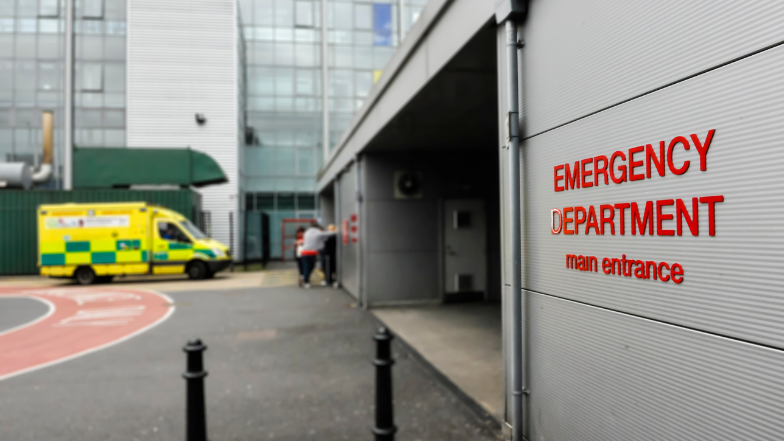
If you’re looking for a career that actually makes a difference, look no further…
From providing medical care and apprehending criminals, to managing disasters and conducting rescue missions, emergency services roles are essential to public safety and well-being. But what job options are available, and what do you need to get hired?
To make your prospects clearer, here are a few of the most popular emergency services careers, what they involve, and our advice on how to get started:
Firefighter
What does the role involve? Firefighters respond to fires, traffic accidents, chemical spills, and other emergencies. Their duties include rescuing people and animals, administering first aid, educating the public about fire safety, and maintaining fire fighting equipment.
What qualifications do I need to become a Firefighter? You’ll need to be at least 18 years old to start a career as a Firefighter, with a good level of physical fitness. You’ll also need to complete (and pass) the firefighter selection process, followed by a 12 week firefighter training programme. GCSEs in English and Maths are beneficial but not always essential.
Perfect for: People who are good at putting out fires (the literal kind).
Paramedic/EMT (Emergency Medical Technician)
What does the role involve? Paramedics provide critical pre-hospital care, including emergency medical treatment and transportation. They respond to 999 calls, assess patients’ conditions, and administer necessary treatments on the scene or en route to hospitals.
What qualifications do I need to become a Paramedic/EMT? To become a Paramedic or EMT, you’ll first need a full UK driving licence (with Category C1 for larger vehicles). Aspiring EMTs will then need to gain a diploma in Emergency Care Assistance (or an apprenticeship). To qualify as a Paramedic, a paramedic science degree alongside registration with the Health and Care Professions Council (HCPC) is essential.
Perfect for: People who know exactly how to react in a ‘Code Red’ situation.
Police Officer
What does the role involve? Police Officers enforce laws, respond to emergencies, conduct investigations, and ensure public safety. Their duties include patrolling neighbourhoods, arresting suspects, gathering evidence, and providing support to victims of crime.
What qualifications do I need to become a Police Officer? Firstly, you’ll need to be 18 or over to become a Police Officer, with GCSEs in English and Maths. You’ll then need to pass the police selection process, which includes assessments, interviews, fitness tests, and background checks. Once you’ve passed this stage, you’ll undertake initial police training, which can be done through the Police Constable Degree Apprenticeship (PCDA), a degree in professional policing, or the Degree Holder Entry Programme (DHEP).
Perfect for: People who want to lay down the law.
How to become a Police Officer
999 Dispatcher (Emergency Call Handler)
What does it involve? 999 Dispatchers, also known as Emergency Call Handlers, answer emergency calls and coordinate response units. They provide critical information to both responders and the public, ensuring that help is dispatched quickly and efficiently.
What qualifications do I need to become a 999 Dispatcher? You’ll need to be at least 18 years old to become a 999 Dispatcher, with GCSEs in English and Maths, alongside strong communication and IT skills. You’ll also need to complete a dispatcher training programme, but this will be provided by the employer.
Perfect for: People who never panic. Ever.
View all Emergency Call Handler jobs
Lifeguard
What does it involve? Lifeguards monitor a range of swimming areas such as indoor pools, oceans and inland waterways to ensure the safety of swimmers. They perform rescues, administer first aid, and enforce safety rules.
What qualifications do I need to become a Lifeguard? To become a Lifeguard, you’ll need to complete the National Pool Lifeguard Qualification (NPLQ), which includes training in pool safety, rescue techniques, first aid, and CPR. Additionally, you need to have first aid certification, training in the use of Automated External Defibrillators (AEDs), and an enhanced Disclosure and Barring Service (DBS) check. Unsurprisingly, strong swimming skills are also a prerequisite.
Perfect for: People who don’t mind being thrown in at the deep end.
Honourable mentions: Search and Rescue (SAR) Technician, Coast Guard Officer, Hazardous Materials (Hazmat) Technician, Disaster Response Coordinator, Prison Officer, Mountain Rescue Team Member, Bomb Disposal Expert (EOD Technician).
Ready to start a career in emergency services? View all vacancies now, or develop your skills with a course.
Sign up for more Career Advice
Source link
All Materials on this website/blog are only for Learning & Educational purposes. It is strictly recommended to buy the products from the original owner/publisher of these products. Our intention is not to infringe any copyright policy. If you are the copyright holder of any of the content uploaded on this site and don’t want it to be here. Instead of taking any other action, please contact us. Your complaint would be honored, and the highlighted content will be removed instantly.

